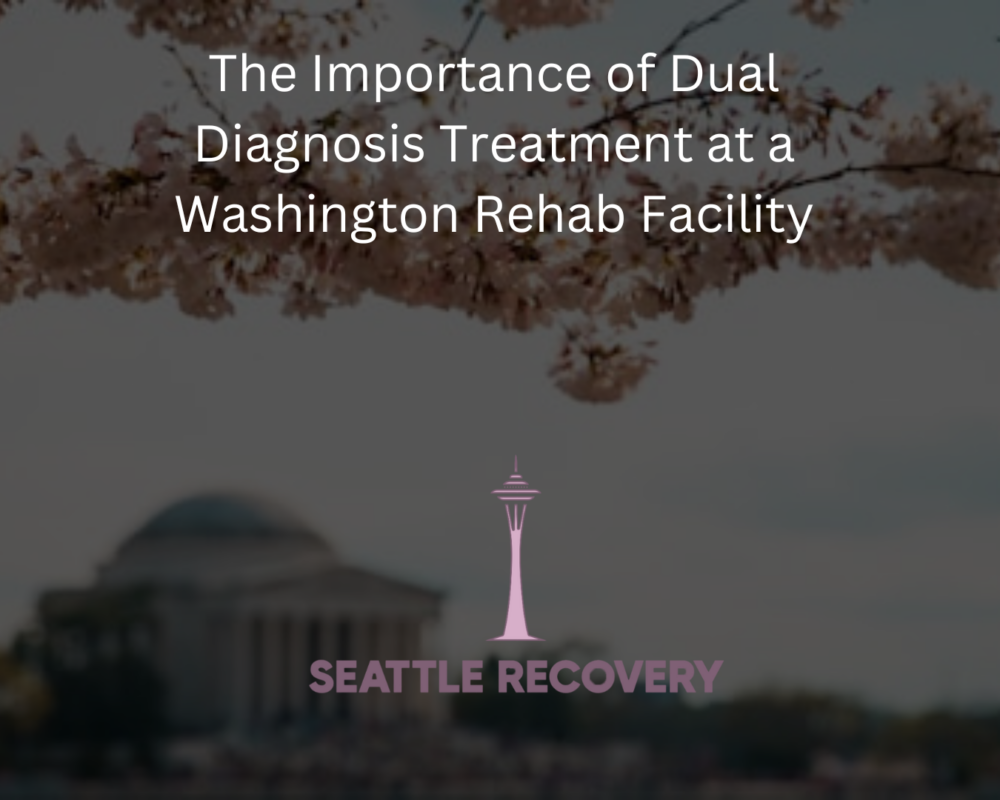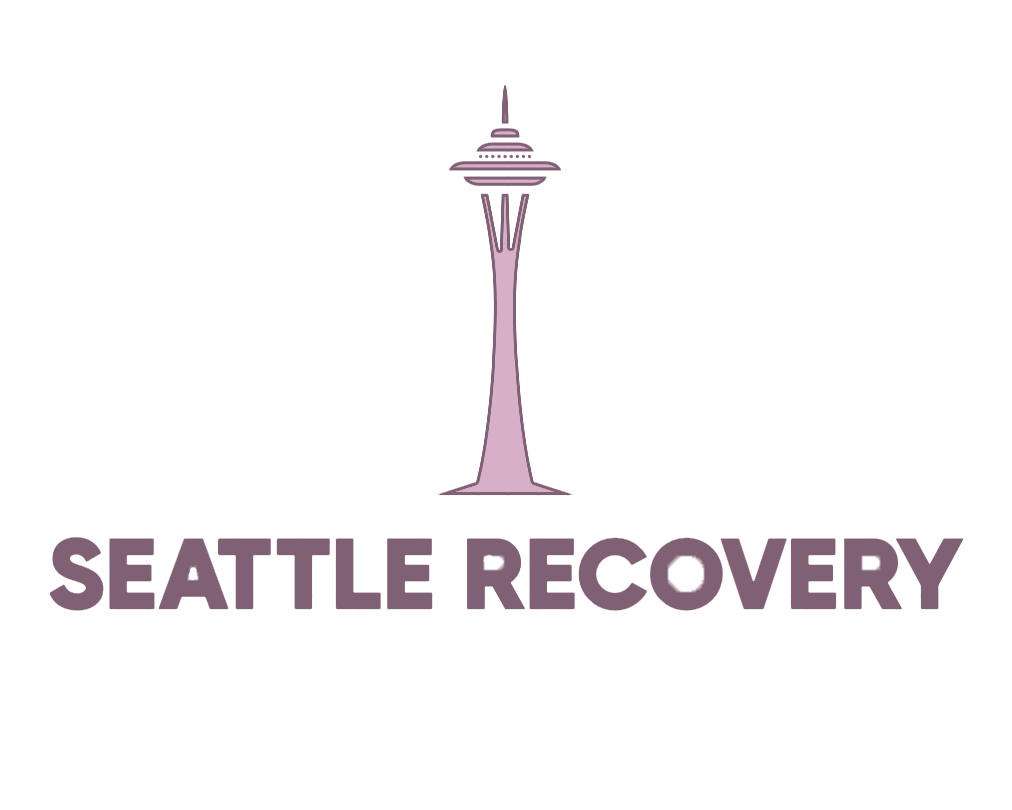When it comes to treating mental health issues and addiction, many individuals struggle with both conditions simultaneously. This co-occurrence of mental health disorders and substance use disorders is referred to as dual diagnosis. Addressing both issues together is crucial for a comprehensive and successful recovery. At Seattle Recovery, a leading Washington rehab facility, we specialize in providing integrated treatment for dual diagnosis, ensuring that each client receives the support they need for a full recovery.
In this blog post, we will explore the importance of dual diagnosis treatment at a Washington rehab facility, why it is essential to treat both disorders concurrently, and how Seattle Recovery can help you or your loved one achieve lasting wellness.
Mental Health Disorders
write about how it is important to get help when you are struggling with a mental health disorder and how it can affect your overall well-being. Explain the different types of mental health disorders, such as anxiety, depression, bipolar disorder, etc., and how they can be debilitating if left untreated.
Mental health disorders are conditions that affect a person’s emotional, psychological, and social well-being. They can range from mild to severe and can significantly impact one’s daily life if left untreated. Some common mental health disorders include anxiety, depression, bipolar disorder, post-traumatic stress disorder (PTSD), obsessive-compulsive disorder (OCD), and schizophrenia.
These disorders can manifest in various ways and may cause individuals to experience difficulty with managing their emotions, thoughts, behaviors, or relationships. For example, someone with anxiety may constantly feel on edge, while someone with depression may struggle with low mood and lack of interest in activities they once enjoyed. If left untreated, these disorders can worsen over time and lead to further complications.
Substance Use Disorders
write about how substance use disorders can develop as a coping mechanism for those struggling with mental health issues and the dangers of addiction. Mention common substances that are frequently abused, such as alcohol, prescription medication, and illicit drugs.
Substance use disorders involve the misuse or dependence on drugs or alcohol. Many individuals turn to substance abuse as a way to cope with their underlying mental health issues. For some, it may provide temporary relief from symptoms or help numb difficult emotions. However, substance use can quickly spiral into addiction and cause severe physical, mental, and social harm.
Some common substances that are frequently abused include alcohol, prescription medication (such as opioids or benzodiazepines), and illicit drugs (such as cocaine or methamphetamine). These substances can have harmful effects on the body and mind, leading to health problems, financial struggles, legal issues, and strained relationships.
Understanding Dual Diagnosis
Dual diagnosis, also known as co-occurring disorders, is when an individual experiences both a substance use disorder (SUD) and a mental health disorder, such as depression, anxiety, PTSD, or bipolar disorder. According to the National Institute on Drug Abuse (NIDA), about 7.9 million people in the United States experience co-occurring disorders.
The relationship between addiction and mental health is often complex. Sometimes, individuals with mental health disorders turn to substances as a form of self-medication, attempting to manage their symptoms. On the other hand, substance use can exacerbate mental health conditions, leading to a vicious cycle that makes recovery difficult.
When both conditions are not treated together, one can worsen the other, leading to more severe symptoms and greater difficulty in overcoming either disorder. This is why dual diagnosis treatment at a specialized Washington rehab facility like Seattle Recovery is so crucial for a successful recovery.
Dual Diagnosis at Seattle Recovery
At Seattle Recovery, we understand the unique challenges of dual diagnosis and tailor our treatment programs to address both disorders simultaneously. Our multidisciplinary team of professionals includes psychiatrists, therapists, and addiction specialists who are trained and experienced in treating co-occurring disorders.
Our dual diagnosis treatment program combines evidence-based therapies with holistic approaches to provide a comprehensive and individualized approach to recovery. We believe that addressing the underlying causes of addiction and mental health issues is essential for long-term wellness. Our program includes individual therapy, group therapy, medication management (if needed), experiential therapies, and aftercare planning.
Additionally, at Seattle Recovery, we understand that each person’s journey to recovery is different. That’s why we offer customized treatment plans that cater to the unique needs and goals of each client. We also provide ongoing support and resources for our clients after they complete treatment with us, ensuring continued success in their recovery journey.
Why Dual Diagnosis Treatment is Essential
Treating both addiction and mental health disorders concurrently is essential for several reasons. First, addressing one disorder without treating the other can lead to a higher risk of relapse, as untreated symptoms can trigger substance use or vice versa. Dual diagnosis treatment reduces this risk by comprehensively addressing all underlying issues.
Secondly, dual diagnosis treatment can help individuals understand how their mental health affects their addiction and vice versa. This understanding can be crucial in overcoming both disorders and maintaining long-term recovery.
Dual diagnosis treatment also provides a more holistic approach to recovery, addressing the mind, body, and spirit. By combining evidence-based therapies with alternative approaches like yoga, meditation, and art therapy, individuals can develop coping skills, manage symptoms, and find inner peace that supports long-term wellness.
The Importance of Integrated Treatment
Integrated treatment is the approach to care that addresses both mental health and addiction at the same time. It is essential for individuals with dual diagnosis because each disorder affects the other, and treating only one without the other is unlikely to lead to a sustainable recovery. At a Washington rehab facility like Seattle Recovery, integrated treatment ensures that clients receive a holistic and comprehensive approach to their care.
- Improved Outcomes: Dual diagnosis treatment focuses on the whole person, addressing both their mental health and addiction issues concurrently. This approach results in better overall outcomes, including improved mental health, reduced substance use, and a lower likelihood of relapse.
- Personalized Care: Every individual’s experience with addiction and mental health issues is unique. Integrated treatment programs at a Washington rehab facility like Seattle Recovery take into account the specific needs of each person, tailoring treatment plans to address both conditions in a way that is most effective for them.
- Support for Recovery: Dual diagnosis treatment offers clients the necessary tools, resources, and coping strategies to manage both their addiction and mental health issues. This ongoing support helps individuals navigate challenges that may arise throughout their recovery journey.

How Dual Diagnosis Treatment Works
Dual diagnosis treatment involves a variety of therapies and strategies designed to treat both mental health disorders and addiction simultaneously. A rehab facility in Washington like Seattle Recovery provides a range of evidence-based treatments to address these complex issues. Here’s an overview of how dual diagnosis treatment works:
Comprehensive Assessment
Treatment begins with a thorough assessment of both the mental health and substance use concerns of the client. This includes understanding their mental health history, substance use patterns, and how these conditions interact. This assessment helps our team at Seattle Recovery create an individualized treatment plan that addresses both aspects of the client’s health.
Therapeutic Interventions
Dual diagnosis treatment often includes a variety of therapeutic interventions, such as cognitive-behavioral therapy (CBT), dialectical behavior therapy (DBT), and motivational interviewing. These therapies help individuals understand the connection between their mental health and substance use, learn healthier coping mechanisms, and develop skills to manage both conditions effectively.
Medication Management
In some cases, medication may be used as part of dual diagnosis treatment to manage symptoms of mental health disorders or to support addiction recovery. A medical team at a Washington rehabilitation facility like Seattle Recovery will carefully monitor and adjust medication as needed to ensure it is effective and appropriate for the client.
Group Therapy and Peer Support
Group therapy is an essential part of the treatment process, providing clients with a supportive community of individuals who are facing similar struggles. Peer support can be incredibly beneficial for those with dual diagnosis, as it fosters understanding and empathy, and helps individuals feel less isolated in their recovery journey.
Aftercare and Relapse Prevention
Successful recovery from dual diagnosis requires ongoing support and a solid aftercare plan. A rehab program in Washington, like Seattle Recovery helps clients build an aftercare plan that includes continued therapy, support groups, and relapse prevention strategies to maintain long-term recovery.
Why Choose a Washington Rehab Facility for Dual Diagnosis Treatment?
When choosing a treatment center for dual diagnosis, it’s essential to select a facility that understands the complexities of treating both addiction and mental health disorders. A specialized Washington rehab facility like Seattle Recovery is equipped with the knowledge, experience, and resources necessary to provide effective integrated treatment.
Here are some of the reasons why Seattle Recovery is an excellent choice for those seeking dual diagnosis treatment:
Expert Staff
At Seattle Recovery, our team consists of licensed clinicians, therapists, medical professionals, and support staff who have experience in treating both addiction and mental health disorders. Our staff is specially trained in dual diagnosis treatment, ensuring that you or your loved one receives the best possible care.
Comprehensive Care
We take a holistic approach to treatment, focusing on the physical, emotional, and psychological aspects of recovery. By addressing both mental health and addiction in a comprehensive way, we ensure that clients receive a complete and personalized treatment plan.
Integrated Services
Seattle Recovery offers a range of services, including inpatient and outpatient treatment programs, therapy, medication management, and aftercare support. All of these services work together to address both mental health and addiction issues, providing a seamless continuum of care.
Focus on Long-Term Recovery
Our goal at Seattle Recovery is not just to help clients overcome addiction and mental health issues in the short term, but to support them in achieving long-term recovery. We provide the tools, strategies, and support necessary for lasting change, helping clients build a strong foundation for a healthy, fulfilling life.
Compassionate Environment
At Seattle Recovery, we understand that seeking help for dual diagnosis can be a daunting process. That’s why we strive to create a compassionate and supportive environment where clients feel safe, heard, and valued. We are here for you or your loved one every step of the way.
The Benefits of Treating Dual Diagnosis Simultaneously
When mental health and addiction are treated together at a rehab program in Washington like Seattle Recovery, it offers several key benefits, including:
- Improved Emotional Stability: Dual diagnosis treatment helps individuals achieve emotional stability by addressing both their mental health and addiction issues. This stability is crucial for long-term recovery, as it allows clients to develop healthier coping mechanisms and avoid relying on substances to manage emotional pain.
- Reduced Risk of Relapse: Treating both disorders at the same time significantly reduces the risk of relapse. When addiction is treated without addressing the underlying mental health issues, the person may return to substances as a way of managing emotional distress. However, by addressing both conditions simultaneously, individuals can reduce their dependence on substances and prevent future relapses.
- Enhanced Self-Esteem and Confidence: Dual diagnosis treatment helps individuals gain a better understanding of themselves and their struggles. Through therapy and support, individuals develop healthier self-esteem, gain confidence in their ability to overcome challenges, and build a sense of empowerment in their recovery journey.
- More Effective Recovery: Comprehensive dual diagnosis treatment results in more effective recovery. By treating both the mental health and substance use disorders, clients are better equipped to face life’s challenges without relying on substances or harmful coping mechanisms.
Get Help Today
Dual diagnosis is a complex and often challenging condition to treat, but with the right care and support, it is possible to achieve lasting recovery. At Seattle Recovery, we understand the importance of treating both mental health and addiction disorders simultaneously. As a leading Washington rehab facility, we specialize in providing integrated, compassionate, and effective treatment for individuals struggling with dual diagnosis.
If you or a loved one is facing the challenges of dual diagnosis, we are here to help. Contact Seattle Recovery today to learn more about our treatment programs and how we can support you on your path to recovery. Together, we can help you build a healthier, happier future. Give us a call at (206) 231-0252 or visit our website at www.seattlerecovery.org.







